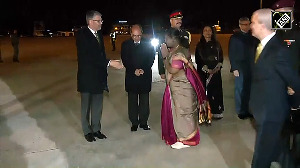The government can argue the change targets only those residing abroad but the fact remains that it does affect the kin and friends in India of non-residents.
In a baffling move, the central government has, in a clumsy and strange manner, removed the duty exemption up to Rs 5,000 given hitherto on import by individuals of bona fide gifts, except for life-saving drugs and rakhis.
The Foreign Trade Policy (FTP) has, for decades, allowed import of gifts of freely importable items without any value limit.
Para 2.25 of the current FTP 2015-20 has a specific provision that ‘import of gifts shall be ‘free’ where such goods are otherwise freely importable under ITC (HS).

In other cases, such import ‘shall be permitted against an authorisation issued by DGFT.’
The commerce ministry amended this provision through notification 35/2019 dated December 12, 2019.
This states: “Import of goods, including those purchased from e-commerce portals, through post or courier, where Customs clearance is sought as gifts, is prohibited except for life-saving drugs/medicines and rakhi (but not gifts related to rakhi).”
One of the two explanations to the notification says “import of goods as gifts with payment of full applicable duties is allowed”.
This nullifies Section 608A of the Customs exemption notification 50/2017-Cus, dated June 30, 2007, which had granted full exemption to import of gifts through courier or post (be it e-commerce import or otherwise) up to a CIF value of Rs 5,000.
However, the prohibition will not operate if full duty is paid.
The Central Board of Indirect Taxes and Customs, through Circular 4/2020-Cus dated January 21, 2020, clarifies that since the goods imported as gifts will be personal import, they will attract basic customs duty (BCD) of 35 per cent and Integrated Goods and Services Tax of 28 per cent under Classification 9804.
This circular makes no mention of the social welfare surcharge (SWS) leviable at 10 per cent of the BCD but it is not exempted.
Thus, taking SWS also into consideration, the aggregate duty is 77.28 per cent.
However, in line with Section 25(6) of the Customs Act, if the duty on any goods is less than Rs 100, this will not be collected by the Customs.
Most non-resident Indians order gifts through e-commerce portals in India and ask the latter to deliver goods sourced from local vendors.
But, there are some who, for emotional reasons, prefer to purchase gifts and send to their relatives or friends in India through post or courier.
It is not easy to understand why the government wants to make receipt of such gifts more difficult and expensive.
It is also difficult to fathom why the commerce ministry preferred to intervene through the said notification 35/2019, when the main purpose is to deny the exemption.
That objective could have been achieved through amendment in the said notification 50/2017 by the finance ministry.
An explanation in notification 35/2019 says rakhi (but not gifts related to rakhi) will be covered under Section 25(6) of the Customs Act, that reads ‘no duty shall be collected if the amount of duty leviable is equal to or less than Rs 100.
What is the point of such an explanation when Section 25(6) applies to all goods?
The government can argue the change targets only those residing abroad but the fact remains that it does affect the kin and friends in India of non-residents.
Illustration: Dominic Xavier/Rediff.com












 © 2025
© 2025